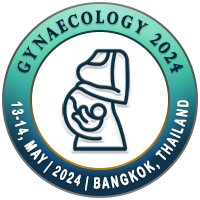
Aurelian Udristioiu
Titu Maiorescu University of Bucharest, RomaniaTitle: Mutant status of the P-53 gene in relation with microRNA, as an unfavorable marker in breast cancer, a systematic review
Abstract
Breast cancer affects more than one million patients in the world annually and is a leading cause of mortality. Of the 25,000 human genes, about 600 genes can cause cancer. Over the past decade, several genes have been identified as genetically linked to the inheritance of breast cancer. BRCA1 and BRCA2 are considered the most important genes linked to inherited breast cancer predisposition, along with the PTEN gene and the P53 gene. Histological type of breast tumor, grade, tumor size, lymph node involvement, and estrogen receptor and HER-2 receptor status, all influence prognosis and the probability of response to systemic therapies.
Breast cancer susceptibility for BRCA1 mutation patients is up to 87% for older women associated with CHECK2, PALB and ATM gene mutations. The P53 gene regulates genes required for telomere maintenance, DNA repair and centromere structure preventing cancer development. The P53 gene encodes the p53 protein, which binds to DNA to perform functions of transcriptional regulation, cell cycle regulation, and triggering apoptosis. According to genetic counseling and epidemiological studies, the risk of developing a certain type of cancer in patients with polymorphisms of the P53 gene is 90%.
Purpose: The aim of this work was to emphasize possible links between alterations of the P53 gene, together with its protein, in the pathological features of breast cancer, resistant to a conventional therapy. It was shown that the P53 gene mutation with the its isoform p53 protein are more frequent in inflammatory breast cancer, (50%), compared to non-inflammatory breast cancer (20-30%).
Method: In recent studies, 110 genes associated with a high risk of breast cancer occurrence, 32 of which correlated with the survival rate, were analyzed by a modern genetic method, Next Generation Sequencing, (NGS). New genetic technologies were investigated to promote a stronger anti-oncogene response, using both RNA-based p53 vaccines and the likelihood of response to specific oncological therapies.
Results: Genetics studies shown that mutant P53 gene status was a strongly unfavorable prognostic factor for relapse-free survival and overall survival only in a triple negative group in patients treated with adjuvant anthracycline-containing chemotherapy. The adjuvanted vaccine induced the type T1 cells helper response in most patients. The results of these studies justified attempts to discover and apply the new vaccines to cancer patients using p53 derived peptides.
Conclusions: Conditions of the mutant P-53 gene or deletion of 17p chromosome were an unfavorable prognostic factor for the survival of patients, treated with only adjuvant chemotherapy, in the groups with triple-negative forms of BC.
Biography
WILL BE UPDATED SOON

